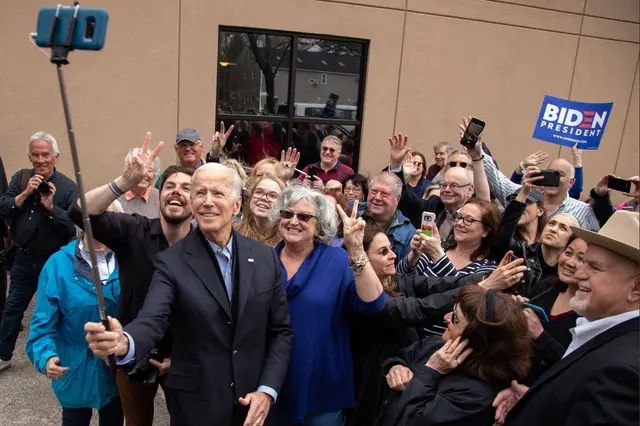Australia has woken to the toughest fiscal tightening in a generation with controversy over broken political promises overshadowed by the determination of the Coalition Government to reel in the national deficit.
Driving a car just got more expensive, being sick has never been so painful and being rich never cost so much. These are the obvious outcomes of Treasurer Joe Hockey's federal budget, with Rodney Maddock, vice chancellor's fellow at Victoria University and adjunct professor of economics at Monash University announcing, Wednesday, the Abbott-Hockey government is gunning for a deficit.
"This means it is pumping more spending into the economy than it is taking out," He said.
The long-anticipated debut budget from the conservative coalition of Prime Minister Tony Abbott and his high-profile Treasurer Joe Hockey after its sweeping September election victory over Kevin Rudd's beleaguered Labor has fixed its sights on Australia's billowing deficit, which currently stands at almost 50 billion Australian dollars.
"The amount of this stimulus is being reduced; the size of the federal government deficit is forecast to fall from 50 billion dollars to 30 billion dollars in 2014-15, a cut of about 1.2 per cent of GDP. It is then expected to continue to fall gradually to be in approximate balance by 2017-18," Maddock said.
More than 2 million Australian families will be reeling in the wake of a sweeping reform of the family tax benefits system, while a visiting fee will now apply for any GP visits and the purchase of prescriptions and medicines.
Aussie families will also have to dig into the change bowl to fund their own health care, the focus of widespread criticism.
A controversial 7-dollar co-payment for GP visits will hit a family of four at around 140 dollars a year if each member visits the doctor five times.
Stringent eligibility rules for the 19 billion dollars a year " family tax benefits" system will strike deeply at millions of ( most likely) middle income household budgets and exclude many upper-middle income families from the system altogether.
According to the Budget papers, released at 7 p.m. Tuesday night, families who can support themselves will receive less assistance from the government.
However, critics have attacked the government's austere approach to health, with concerns over the income gap and social inequality high on the agenda.
According to Fran Baum, Matthew Flinders distinguished professor and director, Southgate Institute for Health, Society & Equity at Flinders University, income equality translates into health equality, and vice versa.
"Australians face greater risk of poor health and chronic disease. Men in the lowest socioeconomic quarter, for instance, die prematurely between the ages of 15 and 64 years at approximately twice the rate of those in the highest socioeconomic group.
"This budget will have a direct effect on health equity because none of the budget items relating to the social determinants of healthemployment, income, health services, education, welfare, housing and transportare being dealt with equitably."
Fuel prices are a constant source of anxiety for Australian voters and the government's plan to introduce changes to fuel excise from Aug. 1 will see the price of fuel driven upwards by the rate of domestic inflation every six months.
Hockey's budget papers show the dramatic fuel excise will likely drive 168 million Australian dollars in extra dollars for the 2014/15 financial year, taking total excise revenue to 17.6 billion Australian dollars. The federal government will likely add a further 2.2 billion Australian dollars over four years by re- introducing what amounts to a twice yearly indexation of fuel excise.
With the Abbott/Hockey government already planning for the revenue to be directed into fresh transport infrastructure projects like the massive West-Connex in Sydney's constricted Western outer suburbs.
The Australian peak motoring body, Australian Automobile Association's (AAA) CEO Andrew McKellar told Xinhua that better roads will be the litmus test of any motoring taxes.
"Motoring clubs will fight for a better deal for motorists and seek a guaranteed and stronger share of tax revenue directed to infrastructure."
With the booming west of Sydney's critical to political influence, and fuel consistently ranked at the top of household expenditure, the move to bolster the excise is bold - with the costs to be shouldered by those living on the outer fringes of major city's and in Sydney's fast-growing west.
Prime Minister Tony Abbott's predecessor and mentor, John Howard was quick to step away from exactly such a tax when he sought re-election in 2001.
If inflation here rises in line with the RBA's expected target over five years, the AAA believes the price of fuel will rise from an average 38.14 cents a liter to 43.68 cents a liter, increasing the average annual fuel bill by about 81 Australian dollars.
Presenting a united national push in the face of economic disaster, the Treasurer Joe Hockey urged all Australians to do their part.
"It is time, for all of us, to contribute and build.. The age of entitlement is over."
Hockey has frozen some government wages and carefully has made a point of targeting high-income earners.
A "Temporary Budget Repair Levy" will see the top marginal tax rate increased by 2 percentage points for the next three financial years.
Those high-earning Australians sitting on around 190,000 Australian dollars a year, will pay an extra 200 Australian dollars annually. Anyone bringing home 500,000 Australian dollars a year will have to find a further 6800 dollars.
Hockey, who called for Australians to "fix the budget together, " faces a tough sell, both publicly and through legislationwhile unemployment remains at a recent record high (above 6 percent), growth will be hard to come by and a dark horizon remains for business investment.
The age of entitlement may well be over, but what comes next is anyone's guess.
 简体中文
简体中文

